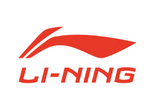China’s rising middle class and changing consumption patterns have ushered in a new class of homegrown Chinese brands. After China’s sportswear brand Li Ning’s debut at New York Fashion Week in 2018, “Guochao” — meaning national trend in Mandarin — has become a buzzword. Li Ning (named after its founder, the triple-gold Olympic gymnast) is listed on the main board of the Stock Exchange of Hong Kong Limited (SEHK) and was founded in 1990. The brand’s collection, available in 7,300 branded sports stores across China, is embedded with traditional Chinese culture and is thought to be a symbol of cultural confidence.
Li Ning business model
Li Ning has seen its brand value jump 66% to $3.4 bn, as per a recent list compiled by Kantar BrandZ. The athletic apparel brand has benefitted from the technical innovations and patriotic styling as consumer nationalism in China has overthrown global brands such as Nike and Adidas. The company generated higher sales in 2021 amid the Tokyo Olympic Games, Beijing Winter Olympics and rising recognition of domestic sports brands among consumers. In FY2021, Li Ning reported a nearly 1.4 times increase in net profit of $630.63 m (4.01 bn yuan).
Li Ning products are typically 40-50% less expensive than foreign brands like Nike and Adidas. Some product lines were launched at comparable price points to those of foreign brands and remain popular among the younger generation.
“Quality of local brands has improved, trust has been built and more importantly mindset of local consumers has changed”, noted Sol Ahn, senior investment analyst at Mirae Asset Global Investments.
Although the company’s majority of business is in China, Li Ning has sponsored NBA basketball superstars like Shaquille O’Neal and Dwyane Wade. It also manufactures and sells a variety of sports products that it either owns or licences, along with a joint venture with the French sports apparel maker Aigle. According to Li Ning’s most recent earnings report, it generated 98.9% of its revenue in China and only 1.1% from abroad.
Li Ning stock movement
The apparel company’s stock has seen a fall of over 37% over the past year, largely due to multiple lockdowns in China and poor retail footfall. The stock has a PE Ratio of 40.45, and a forward PE ratio of 32.89. As of September 6, the company had a price-to-book ratio of 6.99.
Meanwhile, the Xinjiang controversy provoked Li Ning’s removal from Norway’s ($1.3 tn) sovereign wealth fund portfolio in March this year, causing the stock price to fall over 10% in a single month. The fund cited a risk of textile production in Xinjiang as well as Li Ning’s agreement with Xinjiang Jinfujie Clothing Co., a company that manufactures apparel inside an internment camp in the Xinjiang region.
Li Ning caught in controversy
The company became the centre of controversy after reports alleged that it was involved in human rights violations in China’s Xinjiang region and indulged in forced labour at its factories. In March 2022, the US’s Customs and Border Protection (CBP) barred Li Ning’s products from entering the US market under the Countering America’s Adversaries Through Sanctions Act (CAATSA) “unless the importer provides clear and convincing evidence” that no forced labour was involved.
A bipartisan group within the US Congress also urged NBA players to cancel any endorsement deals they have with Li Ning and other Chinese brands, citing allegations of forced labour in the Uygur autonomous region.
“We hope that the result of such efforts would be that the players would leverage their contracts with Anta, Li Ning and Peak to push these companies to end their use of Xinjiang cotton,” said the Democrat lawmakers Senator Jeff Merkley of Oregon and Representative Jim McGovern of Massachusetts in a letter to the president of the National Basketball Players Association.
However, exclusion from the US market will not cause Li Ning much financial harm as the region barely contributes to its revenues.
The number of searches for domestic apparel brands increased by 137% on Baidu, China’s largest search engine. On Tmall (China’s largest B2C e-commerce platform) sales for Li Ning rose by 71.9% in April 2021. Domestic brands receive strong support from major e-commerce platforms. Over the past year, Alibaba’s Taobao, JD.com, and Pinduoduo have all launched guochao-themed sales campaigns.
China’s sports apparel industry and Li Ning’s future
China intends to develop its sports industry into a 5 tn yuan ($725 bn) industry by 2025 to boost employment and domestic consumption in its “new” economy. “China is well-positioned to grow the sports industry, which is still quite underpenetrated compared to other countries, in our view. This suggests to us that an onslaught of increasingly sophisticated facilities and demand for premium sports equipment and apparel could help boost sports participation from a top-down perspective,” said Mirae’s Sol Ahn in a report in 2021. With this long-term trend, Li Ning seems well-positioned to use this backdrop for its future growth.
In late 2021, Li Ning sold 120 million shares of the Company at HK$87.50 per share to Viva China Holdings Limited to raise capital for expansion in domestic as well as international markets. However, no recent updates have been provided by the company on concrete expansion plans or utilization of the fresh capital raised from the share sale.


 Australia
Australia China
China India
India Indonesia
Indonesia Japan
Japan Malaysia
Malaysia Philippines
Philippines Singapore
Singapore South Korea
South Korea Taiwan
Taiwan Thailand
Thailand Vietnam
Vietnam
